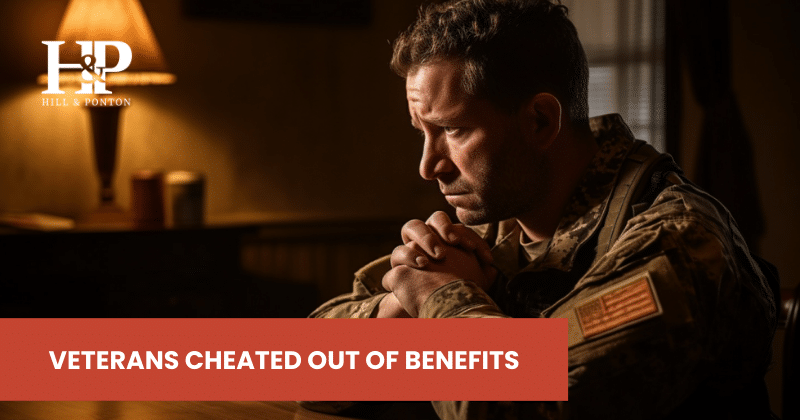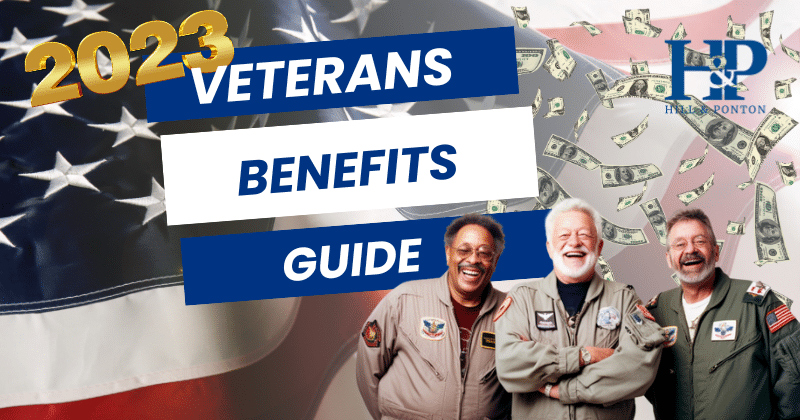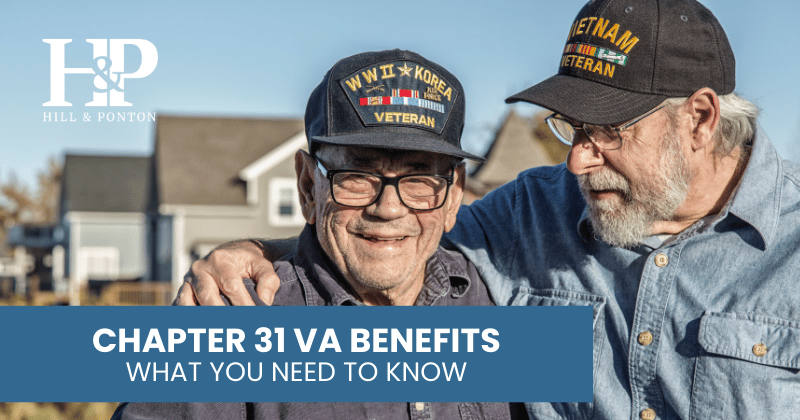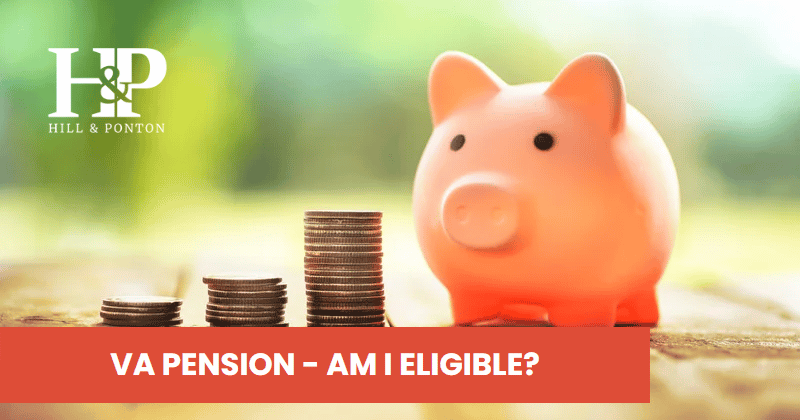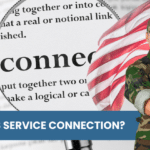Veterans have always stood at the forefront, selflessly serving our country. It’s only right that once their active duty ends, the nation ensures their health and well-being.
However, the Department of Veterans Affairs (VA) healthcare system, intended to cater to veterans’ unique medical needs, has faced its share of challenges.
These issues have not only affected veterans’ physical health but have also taken a toll on their trust and peace of mind.
This guide aims to shed light on the ongoing VA healthcare problems, unravel the intricacies of the PACT Act, and discuss the most common complaints veterans have voiced.
More importantly, we will provide actionable steps veterans can take if they feel their healthcare needs are not being met.
Lastly, we will highlight additional VA disability benefits that go beyond healthcare, ensuring our brave men and women are aware of all the resources available to them.
With the right knowledge and tools, every veteran can navigate the VA system confidently, ensuring they receive the care and benefits they rightly deserve.
The Reality of VA Healthcare Challenges
Overview of Recent Scandals
For many veterans, the VA healthcare system is their lifeline. However, recent times have shown that this system, designed to prioritize veterans, has often faltered.
News reports and firsthand accounts reveal instances of inadequate medical care, administrative mismanagement, and, in some cases, neglect.
Such incidents aren’t just mere headlines; they directly impact veterans who rely on the VA for their health and well-being.
The fallout from these scandals has often led to decreased trust in the system.
Many veterans, instead of seeing the VA as a supportive ally, now approach it with caution and skepticism.
Read more of some of the more recent issues with the VA below that we’ve covered on our blog!

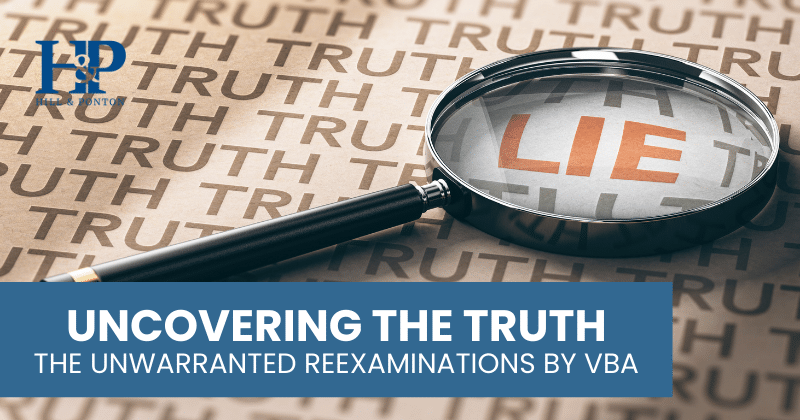
The PACT Act
Recognizing the need for substantial changes, legislative bodies introduced the PACT Act.
Aimed primarily at service members, this act is now at the center of many discussions about veterans’ healthcare.
The PACT Act seeks to address some of the systemic issues within the VA.
By emphasizing transparency, accountability, and a commitment to better service, the act is a promise to veterans that their concerns are being heard and acted upon.
However, the introduction of any new legislation often comes with its own set of challenges.
As veterans, it’s essential to stay informed about the PACT Act’s provisions, its implementation status, and how it could potentially influence your healthcare journey.
Read about the PACT Act in our guide below.
Understanding the Common VA Complaints
Veterans, like all patients, expect timely and quality medical care.
However, several recurring complaints have emerged from those relying on the VA healthcare system.
Recognizing these issues is the first step in addressing and overcoming them.
Wait Times
One of the most voiced concerns is the prolonged wait times.
Whether it’s scheduling an initial appointment or a follow-up, veterans often find themselves waiting much longer than what’s deemed acceptable in standard medical practices.
These delays can lead to worsening of medical conditions and growing frustration among veterans.
Delays can have a domino effect; when one appointment is postponed, it can delay other treatments, tests, or procedures, leading to a cycle of waiting and uncertainty.
Did you know that Hill & Ponton recently surveyed our veteran community about mental healthcare topics, and one of the common complaints was the wait times?
Read more in our article below.
Quality of Medical Care
Quality care is more than just medical expertise; it’s also about listening to the patient, understanding their concerns, and being responsive.
Regrettably, some veterans feel that their healthcare providers at the VA are unresponsive or dismissive of their needs.
Such experiences can make veterans feel undervalued and neglected.
Besides, there are concerns about the general standards of healthcare, with some veterans feeling that the care they receive isn’t up to par with what they would receive in the private sector.
Every complaint, every voice, is a testament to a veteran’s journey through the VA healthcare system.
These challenges shouldn’t be the norm, but by understanding them, veterans and advocates can work towards meaningful change and better care for all.
Strengthening Your VA Disability Claim
When it comes to obtaining the benefits they deserve, veterans often face a labyrinth of bureaucracy and stringent criteria.
One’s VA disability claim can be a pivotal tool in ensuring that rightful benefits are obtained.
Here’s what you need to know to bolster that claim.
The Role of Consistent Medical Treatment
Consistency is key.
Continuous and regular medical treatment serves as a tangible record of a veteran’s health condition.
For the VA, these records act as evidence, validating the severity and persistence of a veteran’s health issues.
When a veteran files a claim for a service-connected disability or any worsening of their current disability, the VA’s first step is often to review recent medical records.
A consistent history of treatment paints a clearer picture of the veteran’s health journey, making it harder for the VA to dismiss the claim or underestimate the disability’s severity.
Addressing Absence of Treatment
Not every veteran’s health journey is the same.
Some might not have continuous medical treatments for various reasons, ranging from personal circumstances, financial constraints, to dissatisfaction with VA healthcare.
It’s crucial to understand that an absence of ongoing treatment doesn’t necessarily equate to the absence of a severe condition.
However, the VA’s perspective can be different. Often, they might view a lack of treatment as an indicator that a condition isn’t severe.
This perspective, though flawed, is something veterans should be prepared for.
When there’s a gap in treatment records, it becomes even more essential for veterans to provide other forms of evidence or testimony that can attest to the severity and impact of their condition.
Personal statements, buddy letters, or records from alternative medical treatments can be valuable in these scenarios.
In the pursuit of rightful benefits, being proactive and informed can make a world of difference.
By understanding the nuances of the VA’s evaluation process and arming oneself with comprehensive evidence, veterans stand a stronger chance of receiving the benefits they have earned.
Navigating VA Healthcare Challenges: Available Avenues
Veterans facing dissatisfaction with their VA healthcare have options.
Even amidst frustration, it’s essential to remember that avenues exist to address concerns, improve treatment experiences, and even seek care outside the VA system.
Here’s a closer look at some of these avenues:
VA Healthcare Patient Advocacy Program
If you feel that your concerns aren’t being addressed adequately, the Patient Advocacy Program can be your first port of call.
Every VA medical facility has a dedicated Patient Advocate.
Their primary role?
To assist veterans with any concerns related to their VA health care.
While the VA recommends trying to resolve issues through your assigned treatment team initially, not every situation might be conducive for this.
If dialogues with the treatment team prove fruitless or if you feel uncomfortable addressing your grievances directly, the Patient Advocate is there to act as a bridge, ensuring that your concerns are voiced and addressed.
The Veterans Choice Program
For those facing significant wait times or other accessibility challenges, the Veterans Choice Program offers an alternative.
Introduced in recent years, this program allows veterans to access healthcare in the private sector, aiming to reduce VA’s backlog and provide timely care.
To be eligible for the Choice Program:
- You must be enrolled in VA healthcare.
- You must meet at least one of the following criteria:
- Unable to get an appointment at a VA facility within 30 days.
- Reside more than 40 miles away from a VA medical facility.
- Face challenges traveling to a VA medical facility due to geography, environment, or specific medical conditions.
- Live in regions without a full-service VA medical facility, such as certain states and territories.
Opting for the Choice Program doesn’t affect your eligibility for standard VA healthcare.
Your co-payments would typically remain consistent, irrespective of whether you receive care through the VA or the Choice Program.
Exploring Other Service-Connected VA Disability Benefits
Beyond healthcare, the VA offers a suite of benefits aimed at addressing various needs of veterans.
From disability compensation, educational benefits, and home loans, to mental health counseling and support – understanding these offerings ensures that you’re not leaving any potential assistance on the table.
Remember, these benefits were instituted to honor your service, and it’s essential to be informed and utilize them fully.
Exploring the Full Range of VA Benefits and Services
While healthcare is a primary concern for many veterans, the Department of Veterans Affairs offers a comprehensive range of benefits and services designed to assist veterans in various aspects of their post-service lives.
Let’s explore these benefits in more detail:
Disability Compensation
For veterans with disabilities resulting from injuries or illnesses that happened during, or were exacerbated by, their active military service, the VA offers disability compensation.
This tax-free monetary benefit depends on the severity of the disability and could be enhanced if the veteran has dependents.
Read about all the benefits you could get from disability compensation in our comprehensive guide below.
Education Benefits
The VA provides numerous educational benefits programs, including the Post-9/11 GI Bill, to support veterans in their pursuit of higher education, vocational training, or on-the-job training.
These benefits can cover tuition, housing, and even supply stipends.
Interested to learn about Education Benefits?
We’ve got an extensive article talking all about them below!
Home Loan
Homeownership is a significant part of the American dream.
Through the VA Home Loan program, veterans can secure loans with favorable terms, often without the need for a down payment or private mortgage insurance.
Pension
Qualified wartime veterans with limited or no income may be eligible for a VA Pension, a tax-free monetary benefit.
Additionally, the VA offers the Aid & Attendance and Housebound benefits for veterans requiring assistance with daily activities or those confined to their homes.
Learn all about VA Pension below!
Career Counseling, Resources, and Support
Transitioning from active service to civilian life can be challenging.
The VA offers resources, counseling, and support to help veterans navigate this transition and find meaningful employment or training opportunities.
Mental Health Counseling and Support
Mental well-being is as crucial as physical health.
The VA provides a range of mental health services, from counseling to inpatient care, ensuring veterans have access to the support they need.
State Specific Benefits
Individual states may offer additional benefits, from tax breaks to educational assistance, exclusively for their resident veterans.
It’s essential to check with your state’s VA office to understand and access these benefits.
Funeral and Burial Benefits
To honor their service, the VA offers burial benefits to veterans, ensuring their final resting place is a dignified one.
This includes grave markers, burial flags, and memorial plots.
Veterans Crisis Line
For immediate help in crisis situations, the Veterans Crisis Line provides confidential support 24/7, accessible via call, text, or online chat.
Spouse and Family Benefits
The families of veterans also receive the VA’s support, from education benefits to health care services.
Understanding these benefits ensures that families are well-supported and cared for.
Advocacy and Taking the Next Steps
The path to obtaining the care, benefits, and services that veterans deserve can sometimes be complex.
However, the key lies in being proactive, informed, and not hesitating to seek assistance when navigating these processes.
Seek Assistance When Needed
If you’re encountering challenges with your VA disability claim, don’t be disheartened.
Assistance is available.
Engaging with a VA Disability Law Firm, like ours, can provide you with the necessary expertise and advocacy to move forward with your claims.
Experienced professionals can guide you, ensuring your claims are presented accurately and effectively.
Stay Updated
The VA and related veterans’ services continually evolve, with new programs being introduced or existing ones getting updated.
Keeping abreast of these changes ensures you’re always positioned to take advantage of the best services and benefits available.
Community Support
Remember, you’re not alone in this journey.
Many veterans’ associations and support groups are available, providing a platform for shared experiences, advice, and resources.
Engaging with these communities can be both comforting and informative.
Your Service is Valued
Never forget that your service to the nation is deeply valued.
The benefits and services provided by the VA, while sometimes challenging to navigate, are the nation’s way of acknowledging and honoring your sacrifices.
With persistence and the right support, you can ensure that you and your family receive the care and benefits you deserve.
In conclusion, our firm is committed to assisting our nation’s heroes.
By understanding the various programs, benefits, and avenues available, and by seeking assistance when needed, veterans can ensure that they receive the acknowledgment, care, and support they’ve rightly earned.
Your journey might have its challenges, but with knowledge and advocacy by your side, the path becomes clearer.
Have Questions About Appealing Your Claim or Understanding How the Claims Process Works?
If you are intending to appeal a denied claim, you can contact us for an evaluation and we can help you with this process.
However, if you are considering filing an initial claim, or even if you are interested in learning about the appeals process, we offer a free ebook to get you started on the right foot!
The Road to VA Compensation Benefits will help break down the claims process from start to finish. Click the link below to learn more.

